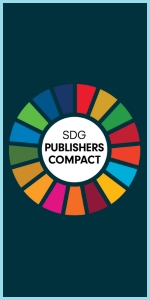Marine and Freshwater Research
Volume 74
Number 13 2023
Tasmania represents less than 1% of Australia’s landmass, yet houses a quarter of Australia’s threatened freshwater fishes, all of them being galaxiids. However, comprehensive genetic assessments of the taxonomic integrity of Tasmania’s galaxiid fishes are available only for 2 of its 17 described species. This study had plugged this gap for the remaining 15 species. Although confirming most species as valid, it identified instances of taxonomic uncertainty and highlighted priority areas for future conservation genomic investigation.
Assessing the effects of climate change on aquatic ecosystems requires water-temperature data from the pre-instrumental era. This information can be reconstructed from the morphology of biominerals in shells of some marine bivalves. However, the thickness of nacre tablets in freshwater pearl mussels is an unreliable temperature indicator, likely owing to pH fluctuations causing physiological stress that affects biomineralisation processes.
Few researches were on the toxicity of marine ecosystems of trimethoprim (TMP) in the previous study. In this paper, two species of marine diatoms, Phaeodactylum tricornutum and Skeletonema costatum, were selected to study the toxic effects of TMP. The results will be benefit to give a better understanding of the potential ecological risks of TMP in marine environment.
Cold water released from stratified impoundments (cold-water pollution, CWP) is a widespread and major threat to fish populations globally. As mitigation options for CWP are feasible but often expensive, robust ecological evidence is required to justify expenditure. We modelled population responses to CWP for two Australian warm-water fish species downstream of two impoundments, showing populations of both species were severely affected. However, impacts were species- and site-specific but remediation of CWP could help restore populations.
Species richness and community composition of stream invertebrates in 2016, after rabbits were eradicated from Macquarie Island in 2011, remain unchanged from what was observed in 2008 and 2010. Recovery and recolonisation appear slow, possibly because few refuges are available. Stream invertebrate communities could take a decade or more to recover.
Increasing interest in mesophotic coral ecosystems has shown that reefs in deep water show considerable variability among geographic regions. In this study, we investigate new imagery from the lower mesophotic zone on the One Tree shelf edge to understand benthic communities and identify and map to classify habitat niches. This research provides important information on a poorly known ecosystem in the Great Barrier Reef Marine Park at a time when the oceans are rapidly changing.





